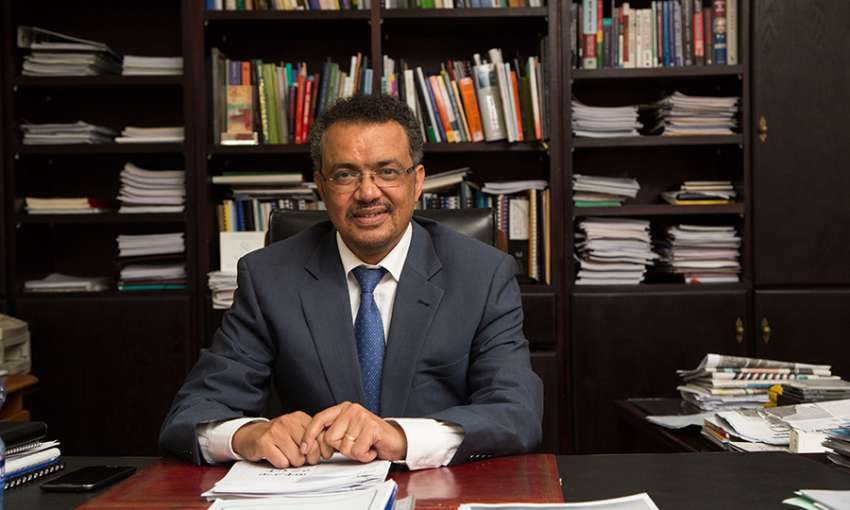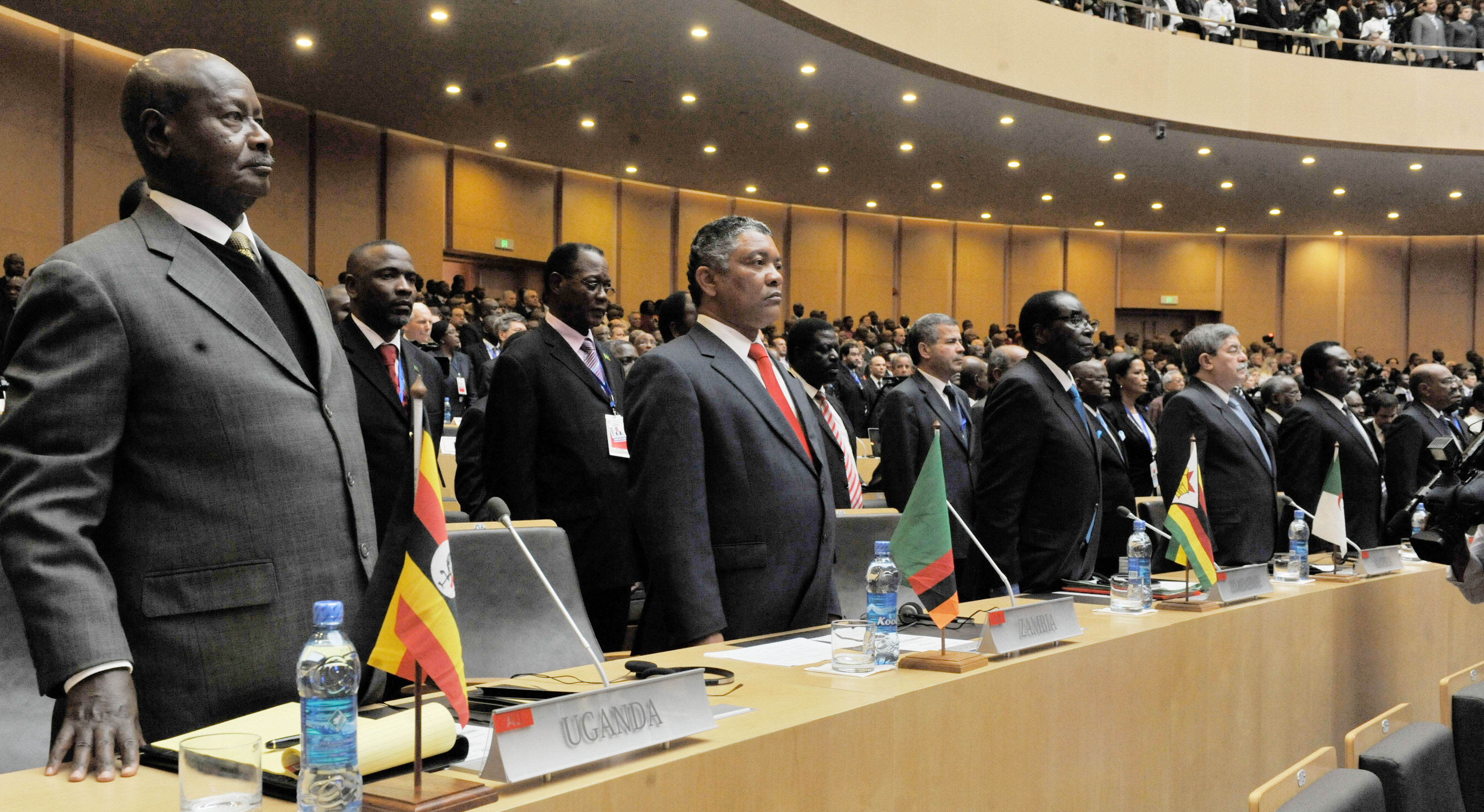
Dr. Tedros…… Health for all has been my life’s work
In the next 48 hours, member states of the global health body, World Health Organization, WHO, would elect a new Director General, during the Seventieth World Health Assembly in Geneva, Switzerland. In this interview with African Leadership Magazine, Dr. Tedros Adhanom Ghebreyesus, a leading contender for the top job, tells us why he is the best man for the job, excerpts: .
- You recently received AU endorsement and have also secured the backing of major stakeholders towards this election; what in your view is responsible for the kind of support you are receiving from across the Globe?
Well, it is heart-warming to have received these endorsement and support and i am sure it’s because, the continent and the major stakeholders are confident in my capacity to serve as the next DG. I am the only candidate who has the technical, political, diplomatic and operational experience to lead the WHO into the future. For the past 30 years, I have worked tirelessly to improve health outcomes both in my home country, Ethiopia, and around the world. As Minister of Health for 8 years, I oversaw a reform effort that transformed Ethiopia’s health system, positively improving the lives of millions by bringing health care closer to communities, promoting prevention and engaging communities in their own health. The fact that we did this in an environment that was resource-constrained with a heavy disease burden would bring fresh perspective to WHO. Later as board chair of the Global Fund, a complex partnership between country governments, the private sector and civil society, I too led a reform effort, starting from a point in which donor confidence was low and culminating in raising $12 billion in 2013, the highest funding level the organization had hit at that time. And finally, as Minister of Foreign Affairs in Ethiopia for four years, I led successful, complex negotiations including peace treaties in countries facing decades long conflicts, as well as the Addis Ababa Action Agenda, a global partnership among 193 countries to achieve and finance the Sustainable Development Goals. The WHO needs a decisive leader who understands deeply the challenges that Ministers of Health face, has a local and global track record of reforming complex organizations and systems and can bring diverse groups to the table. That is what I would bring to the WHO.
- Some analysts have maintained that WHO as presently constituted is in urgent need of reforms; what are some of your immediate priorities when elected?
We are well aware of some of these challenges and ad Director General, i would first work tirelessly to build WHO into a more effective, transparent and accountable agency that is independent, science and innovation-based, results-focused and responsive to member states. This work will have to start with working to regain the world’s confidence in WHO. While there are many elements to this, one that we saw work very well at the Global Fund was instituting an internal and external review panel of representatives who knew Global Fund but were independent and could share their concerns. They helped ensure we were honest about the organization’s strengths and weaknesses, and their work helped to rebuild confidence because we were willing to make ourselves vulnerable to get to the root of the challenges. Additionally, to make WHO more efficient and effective, we need to ensure it has access to more flexible and a broader set of funding sources, as its current funding limits how responsive it can be. This will include increasing the amount of funding – as well as changing the type of funding it receives. Finally, regarding where we focus our efforts, as we saw with Ebola, we need to improve WHO’s ability to respond to health emergencies. To do this, I would urgently implement the reforms the WHO has already started because we don’t know when or where the next emergency will occur. Additionally, I would make achieving universal health coverage my top priority. When we look at all the health challenges facing our world today – from health emergencies to preventing and treating NCDs to achieving the sustainable development goals – all roads lead back to strong health systems and universal coverage. The WHO must be a strong advocate and partner in countries’ efforts to achieve this goal.
- You have been credited with a lot of reforms during your time as Ethiopia’s Minister of Health, tell us about these reforms and how you intend to deploy your experience as the next DG of WHO?
The reform effort in Ethiopia had to start with a shift in mindset and attitude toward one with a focus on primary care with health promotion and disease prevention at its core and one which prioritized accountability and a metrics and results-orientation within the Ministry itself. We then had to build all the necessary inputs for the system—investing in thousands of new health centers and health posts, strengthening our pharmaceutical supply chain, developing an information system from the grass roots to headquarters that would accommodate our diverse patient and provider needs, and importantly increasing financing for the system. To strengthen our human resources, we used task shifting—moving tasks from higher to lower-skilled providers with appropriate training—while at the same time investing heavily in new medical schools to train more providers. We also worked to ensure we were training professionals in all the necessary skills to conduct a comprehensive reform, for example, developing new master’s programs in hospital management, monitoring and evaluation and field epidemiology. The field epidemiology program was modeled on the [US] CDC’s epidemic intelligence officers, so Ethiopia had its own capacity to detect, monitor and respond to disease outbreaks. And finally, we looked for community-driven solutions, mobilizing 38,000 women health extension workers from communities across Ethiopia through the Health Extension Program, which put women at the core to promote healthy behaviors and expand access to basic health care services.
These investments paid off, and within 6 years, we had built a primary care system that covered the entire population. Investing in all the building blocks of the health system—service delivery, workforce, information systems, pharmaceutical supply chain, financing and emergency preparedness—also played a key role in achieving nearly all the Millennium Development Goals.
As we work toward the Sustainable Development Goals—and particularly universal health coverage—I believe this experience will be essential for the next Director-General, as we are asking countries make similar leaps. I am the only candidate with that hands-on experience, so I believe I would bring a unique perspective.
- Funding remains a major issue for WHO, with some donors like the new administration in Washington threatening to cut its contribution, how do you intend to secure more funds?
The key challenges with WHO’s budget today are that the bulk of its funding comes from just a few sources and the majority are earmarked, which results in a situation in which it is overfunded in some areas and underfunded in others. To address this, we must diversify the sources of funding, as well persuade those providing voluntary contributions to shift from earmarking contributions to instead pooling resources into basket funds that could be used across key priorities. We also must be more strategic with what money has already been committed and focus on value for money, dedicating our resources where they can have the largest impact. Finally, we need to strengthen WHO’s internal funding unit ensuring it has the capabilities and capacity to conduct the fundraising necessary to support WHO’s work. As part of this, I also believe there is an opportunity for WHO to pursue more innovative financing mechanisms to support its work. With actions like these and if we can demonstrate results from WHO programs and progress toward the SDGs, I’m confident we will be able to rebuild confidence in WHO and mobilize new resources.


